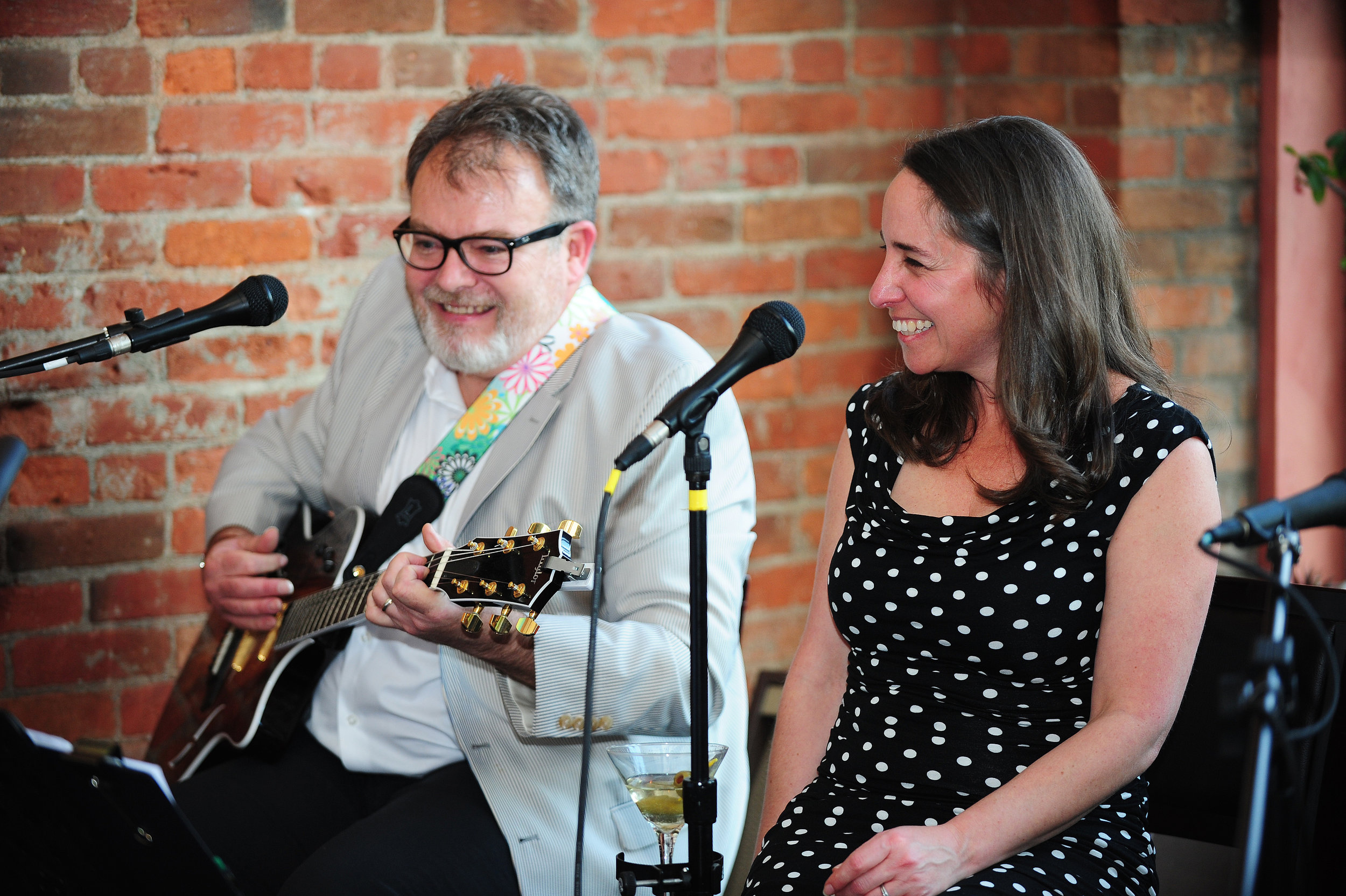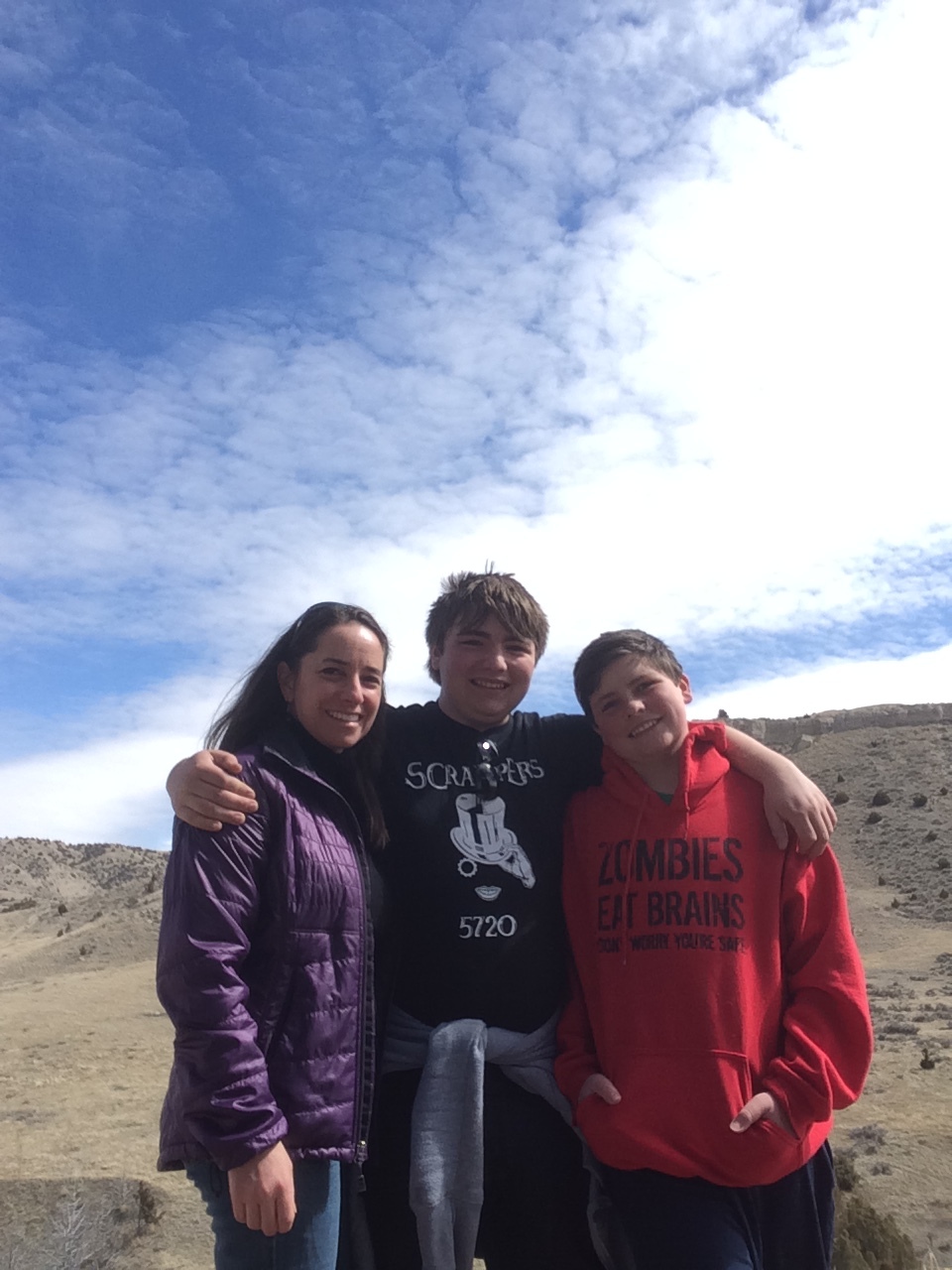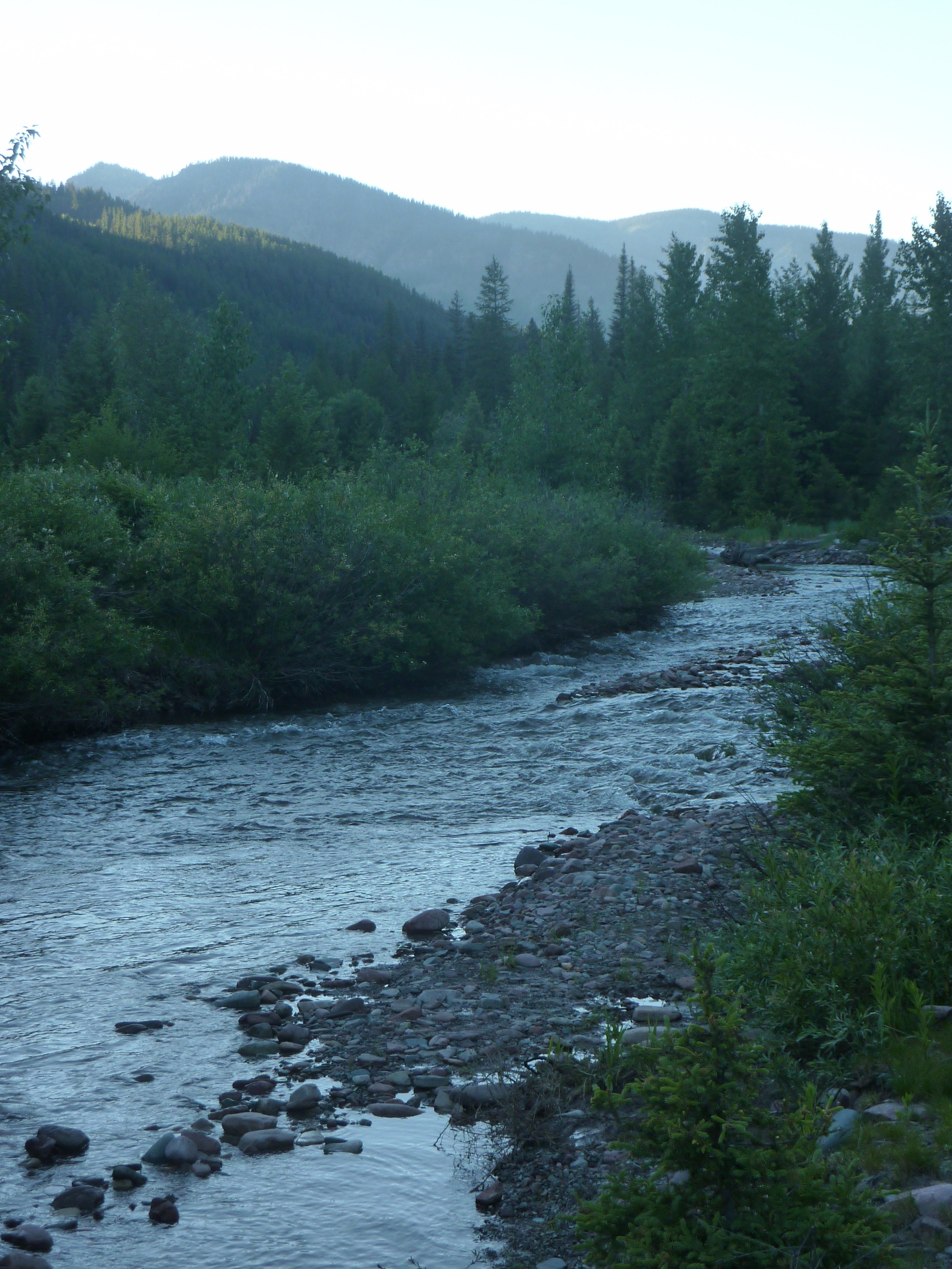Appreciating the "In-Between Space”
Many years ago, I read a post by Nilofer Merchant about what she calls In-Between Space:
Summers when you were young were the in-between spaces of learning – where you could languish in play time and know learning time was ahead... That time where you got a job offer but hadn’t started yet. Maybe even during the search for a new role. Perhaps it is as simple as when you are clear of a new direction.
I think of that post often; I live in an In-Between Space, it's a weird sort of comfort zone for me. I rarely stay content in a job, place, or project. There has to be consistent growth and change in everything I do.
And while it’s not uncommon to find people like me, I believe for the majority of people the equation, comfort=happiness, is true.
It was in a recent conversation that I realized this about myself, that I am in a constant state of change and churn, and that I sometimes let that get me anxious and stressed. It's silly, really, since I know I bring this on myself.
I could say no. I could turn down opportunities to sing, to speak, to mentor someone. But I love it. I love the feeling of change and growth, and none of my choices and activities I do are things I don't want to do. Anything that feels like obligation makes me prickly, so I know when I choose to do something, it’s MY choice.
In one eye-opening conversation, as I was sharing my upcoming schedule with someone, I said: "Thank goodness I don't have anything in the next 5 days to stress about."
Her response was exactly what I needed to hear:
"Did you hear what you just said? I know you're excited about those two performances, but the way you said that made it sound like it was too stressful, like you should have said no."
She was right. I was telling myself that the upcoming things I LOVE to do were stressful. Yes, preparing for something like a live performance takes time, but is that stressful, or is it just figuring out a schedule?
The reality is that whether it’s good stress or bad stress, it has the same negative impact on your body and brain. That’s why it’s so important to not only find ways to decompress, but to choose to be present in everything we do.
The next "Ah Ha" came when someone mentioned an annual event where I'll be singing. It was in April, and I didn't want to talk about it at that point in early February.
I realized that I had many great things coming up before that April performance, and I didn’t want to rush to April. That's when Nilofer's post came back to me again. I was in the In-Between Space with my conference, No Longer Virtual, and a few other exciting events that were scheduled over the following months.
When planning our wedding 20 years ago, I kept a journal with photos taped inside to document the details of the planning process. I knew that by embracing and enjoying each part of the journey, I would slow down the time before the actual wedding day. I also figured that this strategy would help with the emotional let-down following a major event. People talk about what a blur their weddings were, that they don’t feel like they really had a chance to enjoy it. That strategy worked for me, and now I always recommend it to others planning their weddings. It’s almost like slowing down time.
It’s not easy to be present every day, in every moment, and if we want to slow down time and enjoy this wild adventure called life, we have to decompress periodically and be intentional about how we choose to spend our time.
That concept of the in-between space is an important one because it reminds us that living for the weekend, or an upcoming vacation, or the next promotion or raise, leaves us without time to enjoy the little things, the small joys in just, well, BEING. Being near people we love, being in nature, being in a place to create and build and grow something, being quiet.
To slow down time, we need to stop thinking of each day as stressful, trying to make something happen, and start thinking about each day as an opportunity to enjoy the journey.
Even in the most beautiful environment, decompressing and finding your way back to being present doesn't come quickly or easily.
A few years ago when I realized this concept of in-between space and slowing down time, I asked my husband to plan a backpacking trip. I had always wanted to try packing into the wilderness like many of our friends do. I thought that if there was a way to slow down time, I’d find it by disconnecting from devices and reconnecting with myself in nature.
We took our time getting out of town, knowing it would be light well into the evening and not wanting to get started on our hike while it was still over 80 degrees outside. I had never backpacked into the wilderness for overnight camping, though I had spent plenty of time hiking through the mountains. Gear is important for trekking into bear country, so we made sure we had a can of bear spray and a loud whistle for each of us, good shoes for hiking and crossing streams, a water pump so we wouldn't have to carry too much water, and the right food to sustain us.
It was about 5:30 in the evening when we left the car with our packs on our backs and started hiking into the Scapegoat Wilderness Area in Montana. It was a well-worn trail, lots of horses and hikers have explored the area, and many take the three mile hike in for a day trip to visit the famously beautiful Devil's Glen section of the Dearborn River. It was not too rigorous a hike for our first trip in with heavy packs, and though my pack looked almost as big as I am, it was only around 30 pounds.
It didn't seem like very long before we hit the three mile mark and saw a handful of tents and campers around fires in the meadow above the Devil's Glen. We decided to keep hiking and see if we could find a more secluded spot near the river. Another 3/4 of a mile and we headed down a less-worn path toward the river. Bob spotted a perfect campsite on the other side, so we crossed carefully, found a place to pitch the tent, and settled in for two nights.
The river was loud and full of life; as we watched the sunset, we saw a trout splashing in a large pool on the opposite side of the river, heard grasshoppers and birds, and the droning sound of insects all around. After a simple dinner of freeze-dried convenience with decent flavor, we shared a sip of bourbon from the flask and sat by the river to enjoy the view. My head was clear for the moment, taking in the spectacular pink and orange across the sky.
When we climbed into our little tent and put our heads down on make-shift pillows of clothes, I thought I'd fall right to sleep, I was exhausted. The temperature was perfect, the air clean and fresh with a slight breeze through the tent. As my eyes were closing, I became super aware of the sounds of the night around me, remembering that I was in bear country. It took me hours to fall asleep, jolting awake after incorporating the sound of Bob's snore into a dream about a bear outside the tent. Eventually, I fell into a deep sleep and was disappointed to wake up to the early morning light coming into the tent, my head full of busy-ness.
I thought that within a few hours of being in the wild mountains of Montana, my head would be clear of my every day activities -- but it wasn't. Despite spending hours wandering through the spectacular wilderness, my mind was still stuck in overdrive. I woke as I always wake at home, with my head full of thoughts about what would come next, what I forgot to do at work, excitement for our next musical performance, upcoming travel plans, and thoughts of what our boys might be doing at that moment by themselves at the house.
Why couldn't I clear my head? I closed my eyes, trying hard to think of nothingness, to listen intently to the sounds around me, to smell the air and nearby wild flowers. It must have been more than 20 minutes that I tried to relax back into my sleeping bag, getting more and more frustrated with my inability to simply be there, enjoying the peaceful environment.
I finally turned to Bob and suggested we get up, get the food bag from the tree, and make coffee and breakfast.
I've been here before; many years ago I was on my yoga pad at the end of a class, trying to get into the ending meditation provided by the instructor. I was filled with frustration. Every time I focused and dropped myself into the meditation, I'd find my mind wandering all over the place, flitting from one topic to the next. That was the moment, after about 10 years of trying, I realized I didn't like yoga.
That first morning in the woods, focusing on action helped; I was hungry and immediately set off to pump some water for our coffee. I never would have thought flies, especially the biting kind, would be a welcome distraction. But there I was, swiping at the flies landing on my legs and starting up the little burner for coffee, no thoughts buzzing in my head but the need for coffee and oatmeal.
We packed up for a day hike and headed upstream, bushwhacking through the dense, lush forest among wild roses, Indian Paintbrush, elk scat, mushrooms, and dead trees littering the ground. Stopping along the rushing river periodically for Bob to cast his nymph, hoping for a brown trout for dinner, I had the camera poised for my own catch for the weekend. It was mostly quiet, which, in bear country, isn't really a good thing, so I hummed and sang some of the songs we were working on for our next gig.
My head wasn't clear, but I was relaxed.
By the time we hiked back out to the car after two nights, I was tired but not exhausted. I felt strong, healthy, and comfortable in my skin, even though I smelled like I hadn't bathed in three days. I unloaded my backpack into the car and opened the cooler we had stashed inside, pulling out my favorite local brew, Lewis and Clark Brewery's Prickly Pear Pale Ale. My head was finally clear.
Driving back through some of the most beautiful landscapes in the country, I turned on my phone to let our boys know we were on our way, and to suggest they clean up evidence of junk food binging. It beeped and beeped as the signal came on to retrieve missed calls and text messages. I wanted to ignore it, but the pull of connection was too strong. I read the messages.
I really didn't miss anything. So I put the phone down and didn't pick it up again until we unloaded the car back at our house.
I had no intention of looking at my computer when I got home, and managed to leave it closed until late into the evening when I had to review a document for a client.
It took me three days to disconnect from my electronic devices and clear my head. That can't be a good thing.
A lot has been written about humanity's disconnect from nature as a result of our addiction to our electronic devices. That disconnect has wreaked havoc on our ability to safely spend time in nature and effectively connect with people around us.
If we don't disconnect from screens and reconnect with people, ourselves, and our natural environment, and find ways to embrace the in-between space, we will lose our ability to connect in any real way with our own humanity.
What will you do to change this trajectory in your life and the lives of your family and community? How will you adjust your patterns to slow down time? If you don't, you'll miss out on all kinds of stories to share. Enjoy the in-between, be a storymaker.
SAVE-THE-DATE for the third annual No Longer Virtual conference on February 21 and 22nd in Atlanta, Georgia. It's already half-way to capacity, so save your spot today.









